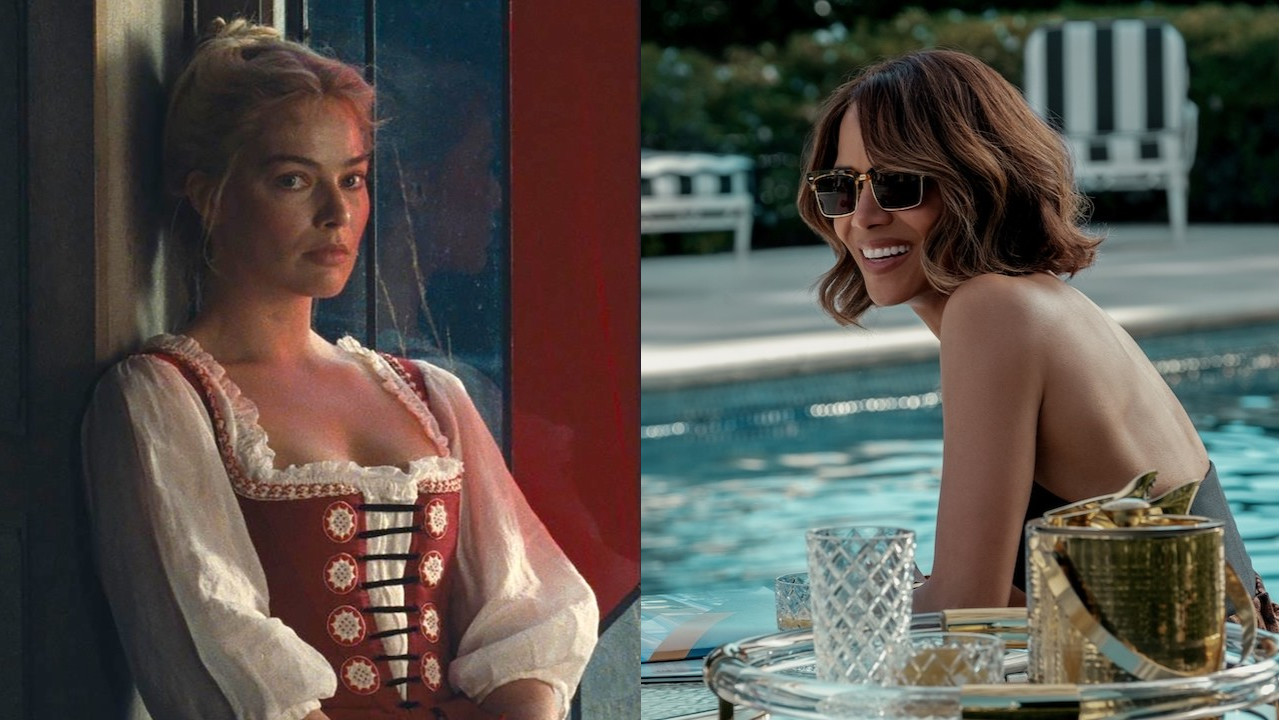Netflix's Jupiter's Legacy Ending Explained: How The Superhero Comic Drama Sets Up Season 2
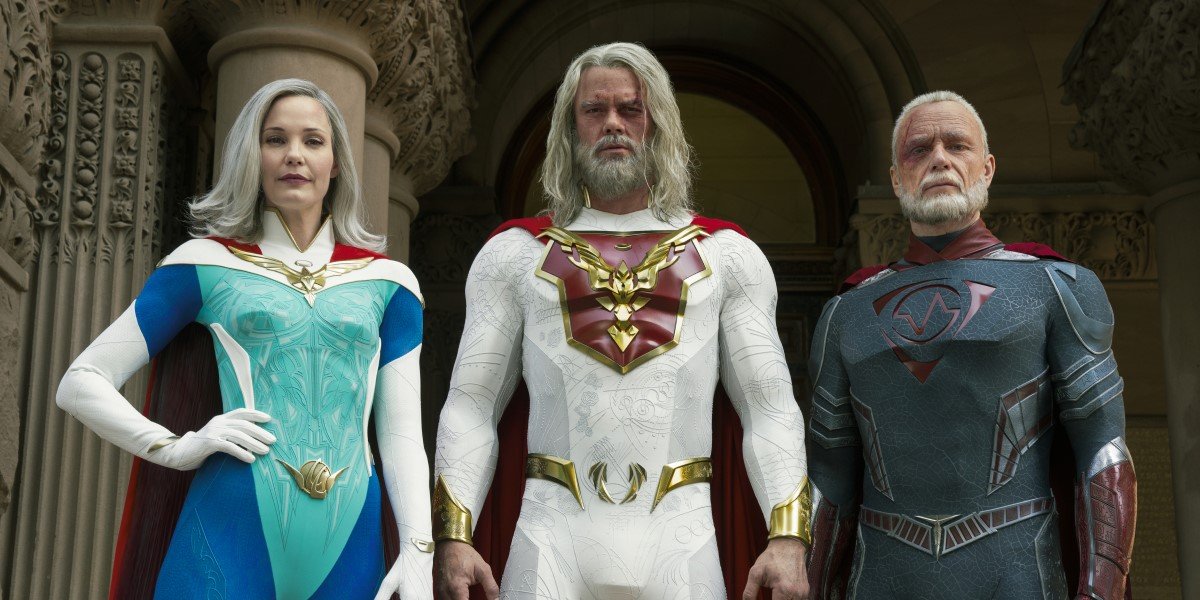
Your Daily Blend of Entertainment News
You are now subscribed
Your newsletter sign-up was successful
Major spoilers below for the entirety of Netflix's superhero drama Jupiter's Legacy, so be warned!
As one of Netflix's most popular original series going into the 2021 Summer TV season, the superpowered saga Jupiter's Legacy is the first of an assumed variety of streaming adaptations bringing comic book creator Mark Millar's works to life. Though viewers' mileage may vary when it comes to critiquing the overall quality of these first eight episodes, it's pretty undeniable that Season 1 ends in ways that can only be described as "plotty set-up for Season 2," to the point where a second season renewal was essentially built into the storytelling formula.
Regardless of whether that was a genius or a baffling move on the part of original TV developer Steven DeKnight (who left early on in the production) and/or the newer showrunner Sang Kim, let's take a closer look at how Jupiter's Legacy semi-wrapped up its various storylines through the finale. (A finale that is titled "How It All Ends," which is quite bizarre since nothing actually ends, so to speak, but I digress.) Let's kick things off with the biggest twist of Season 1, which all the evil telepaths reading this story just knew was going to happen.
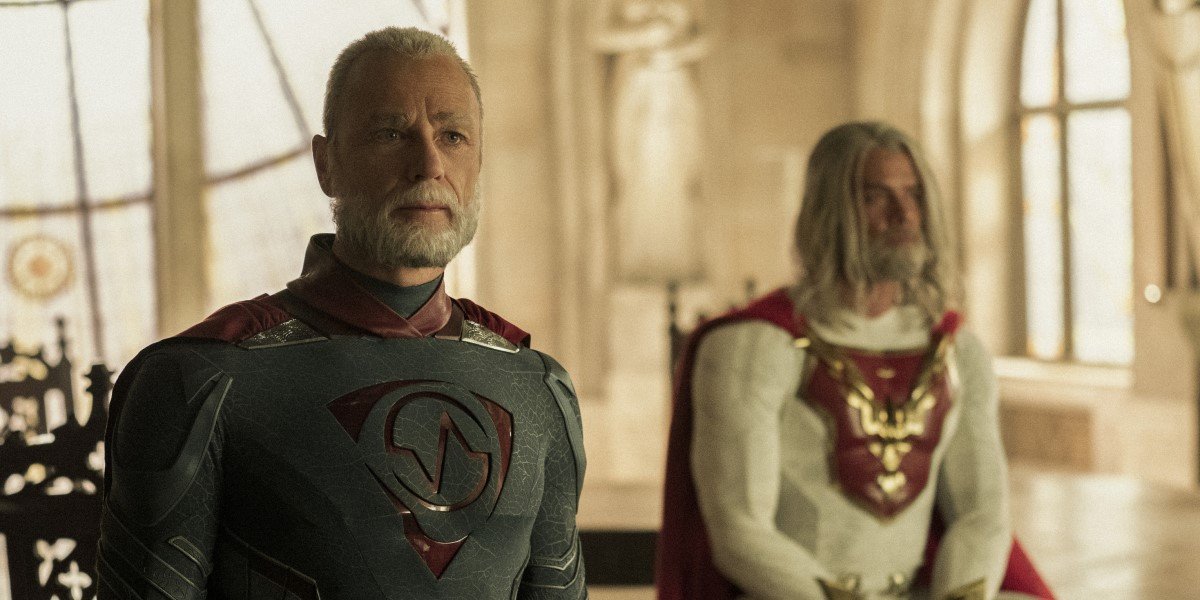
Brainwave Was The True Villain All Along
Somewhat similar to how things play out for the Sampson brothers within the Jupiter's Legacy source material, the TV series twists a big knot in the elder siblings' relationship by revealing Ben Daniels' Walter (a.k.a. Brainwave) was the actual antagonist behind much of the current-day crises of faith and family plaguing The Union. Walt was the one who cloned Blackstar, which was the catalyst for the Code-based fissures that formed between Andrew Horton's Brandon (a.k.a. Paragon) and Josh Duhamel's Sheldon (a.k.a The Utopian), because Walt is pretty sick of the superhero status quo and thinks the U.S. has spiraled out of control because of his brother's insistence on not breaking the Code.
Season 1 ends with Walt cementing his supervillainy by slitting the throat of his own daughter Raikou (Anna Akana) after she messed up by revealing what she knew about his double-crossing nature, as well as his overall goal to coerce nephew Brandon down a different life path from his father. (Not to mention she then tried to coax more hush money from Walt.) Meanwhile, in a feat of terrible timing, Sheldon specifically asked Walt to help mend his relationship with Brandon, with the elder brother only too happy to accept the task. (More about Brandon lower.)
Those Season 2 building blocks are pretty obviously laid out for viewers, but Brainwave's fight with Matt Lanter's Skyfox (who will also be discussed lower) introduced the pretty huge implication that Walt has been a behind-the-scenes antagonist for far longer than just the events that played out in the first eight episodes. Skyfox (a.k.a. George Hutchence) accused Brainwave of convincing the other Union members to go against him, leading to him being their greatest enemy. So viewers can probably expect to see everything that led to Walt and George's fallout in future episodes, and more from Walt probably attempting to kill others, eventually approaching the same fate as others who were tested by the mysterious Island.
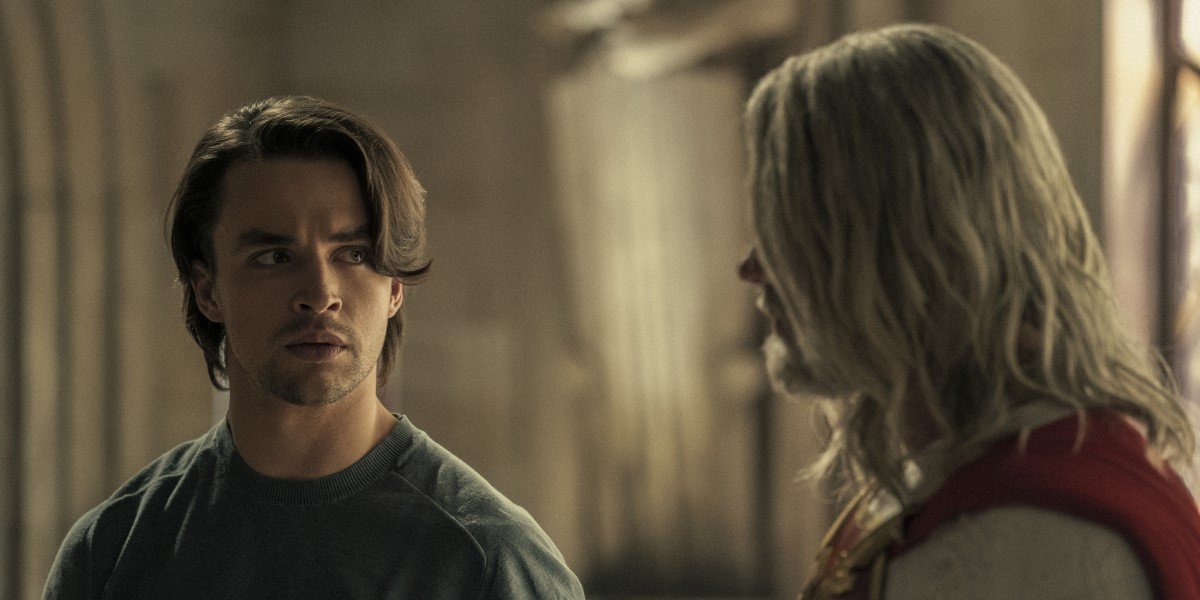
Sheldon Basically Ruined His Relationship With Brandon
Jupiter's Legacy brought a distinctly comic-book sense of symmetry to up-but-mostly-down relationship between Sheldon and Brandon, first incited by the younger Sampson theoretically breaking the Code by totally destroying the Blackstar clone's face. In the end, the real Blackstar tried to force Sheldon into murder by threatening Brandon's life, with the almighty Utopian taking wayyy too long to go into bright-eyed power mode. Naturally, Sheldon later tried to convince Brandon that he would never have let the villain really kill him, but even viewers know that if Tenika Davis' Petra (a.k.a The Flare II) hadn't shown up to disrupt the confrontation, things might have gone in such a way where Brandon's head would no longer be attached to his body.
Your Daily Blend of Entertainment News
And though Brandon obviously tells Sheldon that he believes him, there are roughly a billion seeds of doubt already planted there, with Elena Kampouris' Chloe Sampson (a.k.a. not an official superhero) always around to shit-talk their dad and his goody-two-shoes ways. To Andrew Horton's credit, Brandon's poker face is such that it's not entirely clear where he'll land in Season 2. He obviously doesn't fully buy into the thrust of his father's legacy, but still seems to understand the general value behind the Code, so I can't see him going completely rogue as the character more or less does in the comics. Then again, Walt can sway Brandon's actions from both the outside and the inside, so we may see a major father-son-also-uncle showdown in the next eight episodes or so.
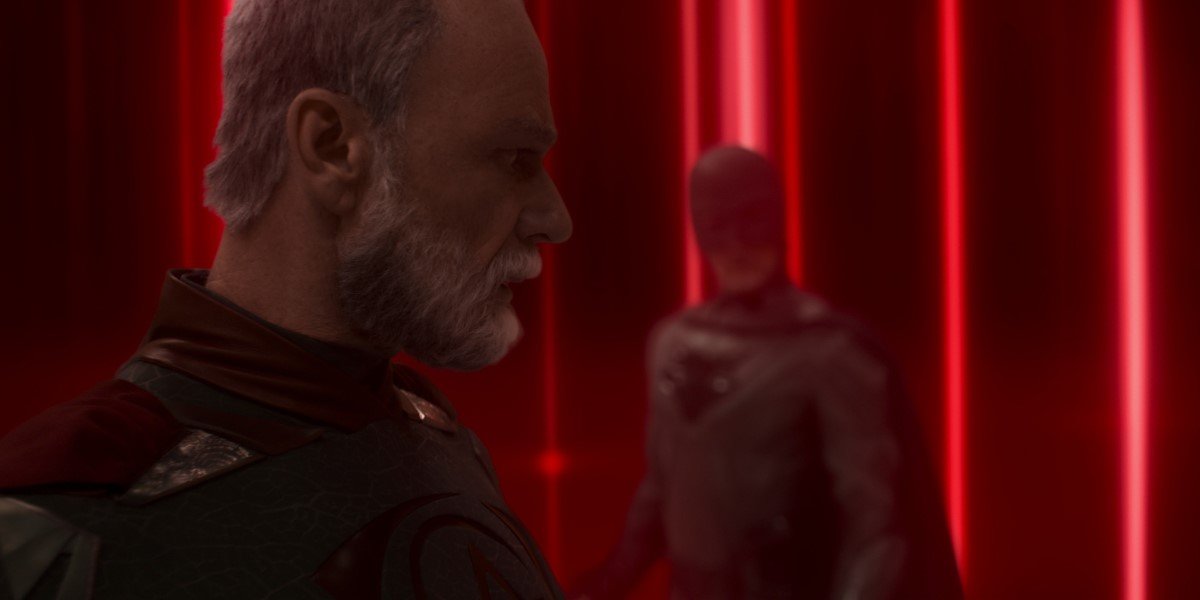
Skyfox Finally Showed Up In The Weirdest Way
Throughout Jupiter's Legacy Season 1, Matt Lanter's George is very prevalent in the 1930s' scenes, but is almost entirely absent from the current timeline, save for a few mentions here and there about Skyfox being The Union's biggest nemesis. That changed in the finale, where it was revealed that George-as-Skyfox was/is trapped inside some kind of abstract mindspace, though that wasn't entirely explained. In any case, this is where he trapped and battled Brainwave for a while, accusing the latter of turning everyone against him, to the point where they beat him in front of his son (presumably Ian Quinlan's Hutch).
Leslie Bibb's Grace (a.k.a. Lady Liberty) popped into the cloned brain-space to assist Brainwave against Skyfox, which then led to Walt showing Grace the "how it all ends" vision that George put in his head. Only it wasn't fully clear if the imagery that Walt showed Grace - Skyfox smoking a cigarette over Utopian and Paragon's bloody-faced corpses - is the same one that he was shown. It very likely wasn't, and was instead just more of Walt's manipulation campaign to portray George as the real big bad.
I can only hope that Jupiter's Legacy viewers will see more from Matt Lanter as Skyfox in Season 2, preferably in the expanse of time between the group's inception in the 1930s and the current storyline setting. Considering how much Season 1 played up his friendship and kinship with Sheldon - which Skyfox brings up as a key reason why they all got their powers - it would be baffling for the TV series to just ignore the entire span when George was a true superhero within The Union, as well as to not reveal the big reason why he later became a villainous pariah. In the comics, it did involve a woman, which possibly plays into the story of George and Walt's respective children. Unless it doesn't. But speaking of...
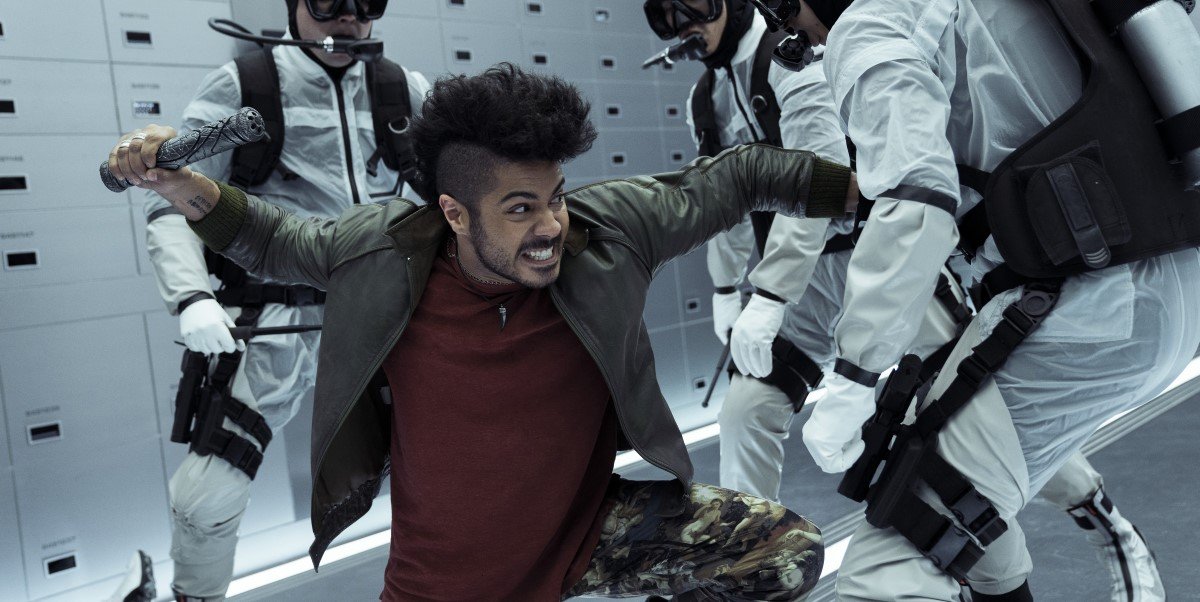
Hutch Is Building A Weapon To Find His Father
As revealed in the finale following a pretty stellar fight in complete, oxygen-free silence, Hutch's grand criminal scheme throughout Season 1 was to gather all the necessary requirements needed to build some kind of a super-weapon that he tells Chloe he aims to use to find his father George. (Note that he didn't exactly offer up any denials when Chloe asked if he was going to use it against the Utopian.) It was a cool moment as far as these kinds of reveals go, but viewers were left completely in the dark how any of that was meant to happen for Hutch.
Thus, Season 2 will obviously feature Hutch using that mysterious device in such a way that he can track down his father, presumably in connection with his teleportation rod. Regardless, it seemed curious that Episode 8 was also the same episode that drew more attention to Hutch not having any innate abilities beyond controlling the power rod, as well as playing up how it originally belonged to David Julian Hirsh's Richard Conrad (a.k.a. Blue Bolt). Seems like a second season should also deliver some answers on that front, explaining why not everyone's powers were passed on genetically.
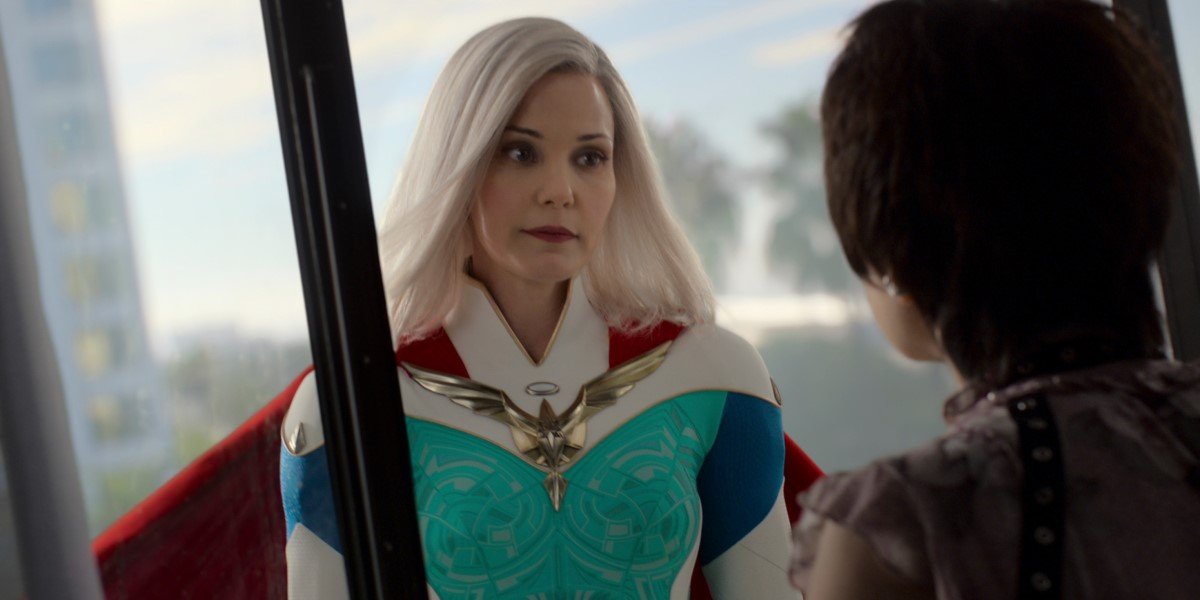
Other Characters Whose Stories Didn't Really Wrap Anything Up
While Leslie Bibb and Elena Kampouris both gave solid performances as Grace and Chloe Sampson, respectively, Jupiter's Legacy Season 1 didn't really grant either of them a full character arc that ended in any big or dramatic ways. As mentioned previously, Grace fought Skyfox and saw Walt's take on George's "how it all ends" vision, while also being aware of the growing familial rifts. Meanwhile, Chloe saved Hutch from his botched heist (while not exactly disguising herself) and appeared to be more than halfway to joining up with Hutch on his mission to find his father. But that's about it.
The same mostly goes for Mike Wade's Fitz Small (a.k.a. The Flare) and his daughter Petra. It was interesting to see how Fitz's origin story in the 1930s played out throughout the season, but viewers saw very little of him in Flare mode, with the Union's first get-together in the finale as his shining superhero scene. The lack of The Flare was strange because of how prominent the character is in the comics (though as a completely different kind of person), though understandable given the lack of storylines set from the 1940s through the 2010s.
As well, beyond the later-season flashback scenes, Jupiter's Legacy didn't take much time to explore Richard Conrad and his legacy as Blue Bolt, leaving viewers with very little to speculate over regarding the character's current whereabouts. It's presumed that more of Blue Bolt's story will come out in Season 2, given the first season's focus on Sheldon's various relationships, but still a strange move to offer such a fleeting look at such an important comic character.
Considering how Season 1 left things off, there are no exact guarantees that Jupiter's Legacy Season 2 will arrive with fully logical explanations for everything that was left out before. But if the first season is as popular as Netflix and Mark Millar are no doubt hoping, then maybe it'll inspire all involved to speed up the storytelling in the future. The only way to convince the powers that be to make it happen is to keep streaming Season 1 on Netflix, and tell all your friends, even the ones that keep talking to their parents' corpses while scrawling out maps.

Nick is a Cajun Country native and an Assistant Managing Editor with a focus on TV and features. His humble origin story with CinemaBlend began all the way back in the pre-streaming era, circa 2009, as a freelancing DVD reviewer and TV recapper. Nick leapfrogged over to the small screen to cover more and more television news and interviews, eventually taking over the section for the current era and covering topics like Yellowstone, The Walking Dead and horror. Born in Louisiana and currently living in Texas — Who Dat Nation over America’s Team all day, all night — Nick spent several years in the hospitality industry, and also worked as a 911 operator. If you ever happened to hear his music or read his comics/short stories, you have his sympathy.
